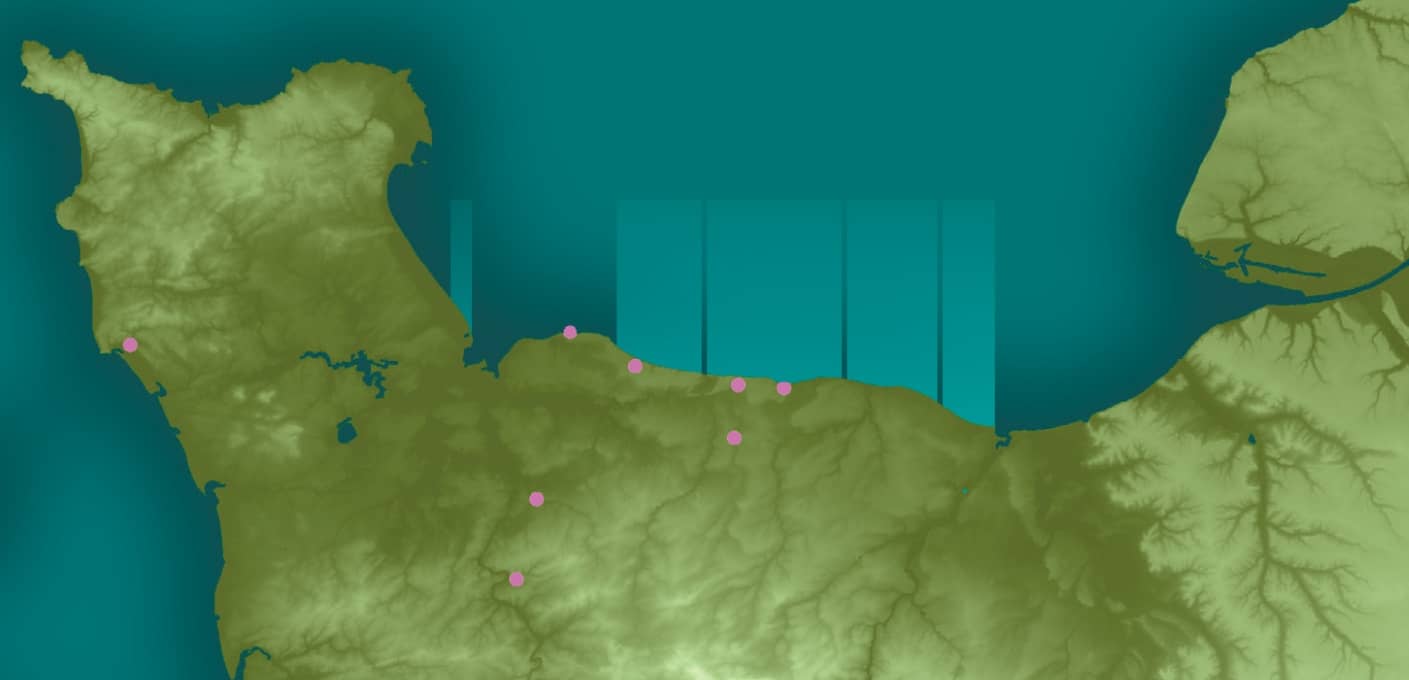試す 金 - 無料
LETTER FROM NORMANDY: THE LEGACY OF THE LONGEST DAY
Archaeology
|July/August 2020
More than 75 years after D-Day, the Allied invasion’s impact on the French landscape is still not fully understood

United States Army Air Forces 2nd Lt. William J. McGowan was 23 years old when he died near the village of Moon-sur-Elle in northern France. McGowan had grown up in the small town of Benson in western Minnesota, where he loved to ski. He attended Benson High School, St. Thomas Military Academy, and then the Missouri School of Journalism, where he received his degree in 1942. He worked as a journalist and editor, first for the United Press news service in Madison, Wisconsin, and then for his hometown paper, the Swift County Monitor-News, of which his father was the editor and publisher.
In 1943, McGowan was called to Eagle Pass Army Airfield in southern Texas for training. In December, he earned his pilot’s silver wings and his commission. A month later, he moved on to Harding Airfield in Baton Rouge for flight training on the P-47 Thunderbolt, the beloved workhorse of World War II American aviation. There he married Suzanne “Suki” Schaefer of Winona, Minnesota, and two months later was sent to England aboard Queen Mary. On May 15, he joined the 391st Fighter Squadron, 366th Fighter Group. Between May and June 5, McGowan made 10 sorties and flew four combat missions.

このストーリーは、Archaeology の July/August 2020 版からのものです。
Magzter GOLD を購読すると、厳選された何千ものプレミアム記事や、10,000 以上の雑誌や新聞にアクセスできます。
すでに購読者ですか? サインイン
Archaeology からのその他のストーリー

Archaeology
THE EGYPTIAN SEQUENCE
Until now, the earliest Egyptians to have even part of their DNA sequenced were three people who lived between 787 and 544 B.C.
1 mins
November/December 2025

Archaeology
SOURCE MATERIAL
As early as 40,000 years ago, some hunter-gatherers in southern Africa ventured long distances to procure special types of stone to make their tools.
1 min
November/December 2025

Archaeology
Secrets of the Seven Wonders
How archaeologists are rediscovering the ancient world's most marvelous monuments
13 mins
November/December 2025

Archaeology
ACTS OF FAITH
Evidence emerges of the day in 1562 when an infamous Spanish cleric tried to destroy Maya religion
12 mins
November/December 2025

Archaeology
OASIS MAKERS OF ARABIA
Researchers are just beginning to understand how people thrived in the desert of Oman some 5,000 years ago
8 mins
November/December 2025

Archaeology
FOSSIL FORCE
One of the planet's most successful arthropods, trilobites, abounded in the oceans from about 520 million to 250 million years ago.
1 min
November/December 2025

Archaeology
BIGHORN MEDICINE WHEEL, WYOMING
Perched almost 9,700 feet above sea level on Medicine Mountain in Wyoming's Bighorn Range, the Medicine Wheel is an 80-foot-diameter circular structure made from limestone boulders.
2 mins
November/December 2025
Archaeology
ANCIENT LOOK BOOK
A young woman buried in China's Tarim Basin some 2,000 years ago went to the afterlife accompanied by the height of fashion.
1 mins
November/December 2025

Archaeology
A FAMILIAR FACE
In the early eleventh century, a landslide on the island of Ostrów Lednicki in western Poland caused a hillfort to collapse and slip to the bottom of Lake Lednica.
1 min
November/December 2025

Archaeology
Temples to Tradition
A looted cache of bronzes compels archaeologists to explore Celtic sanctuaries across Burgundy
13 mins
November/December 2025
Translate
Change font size

